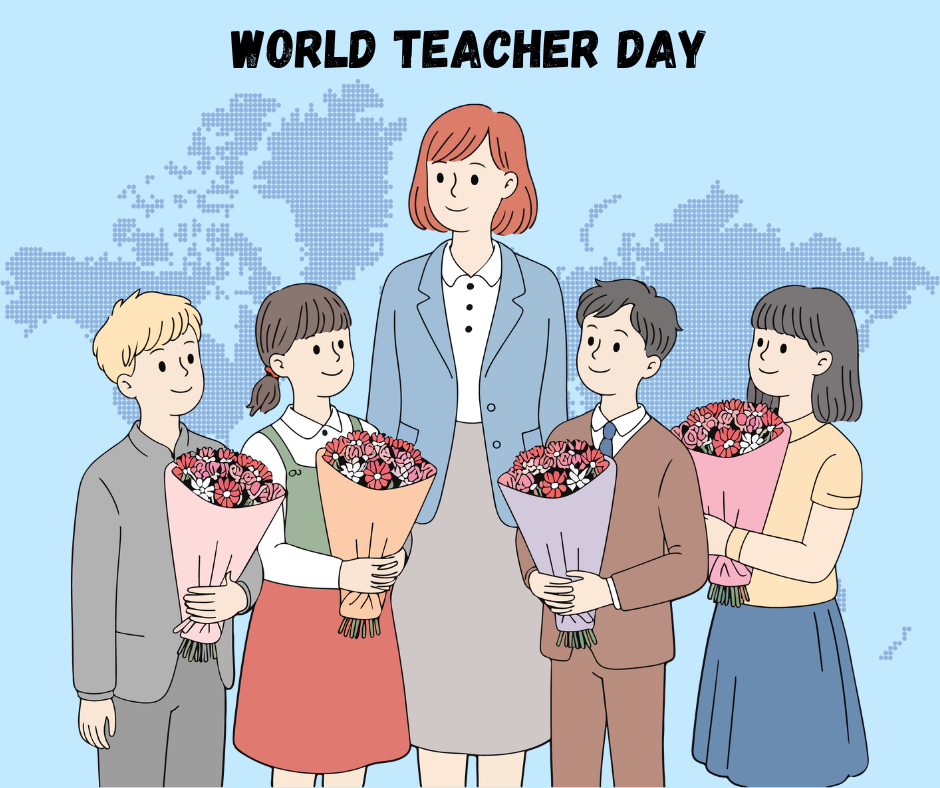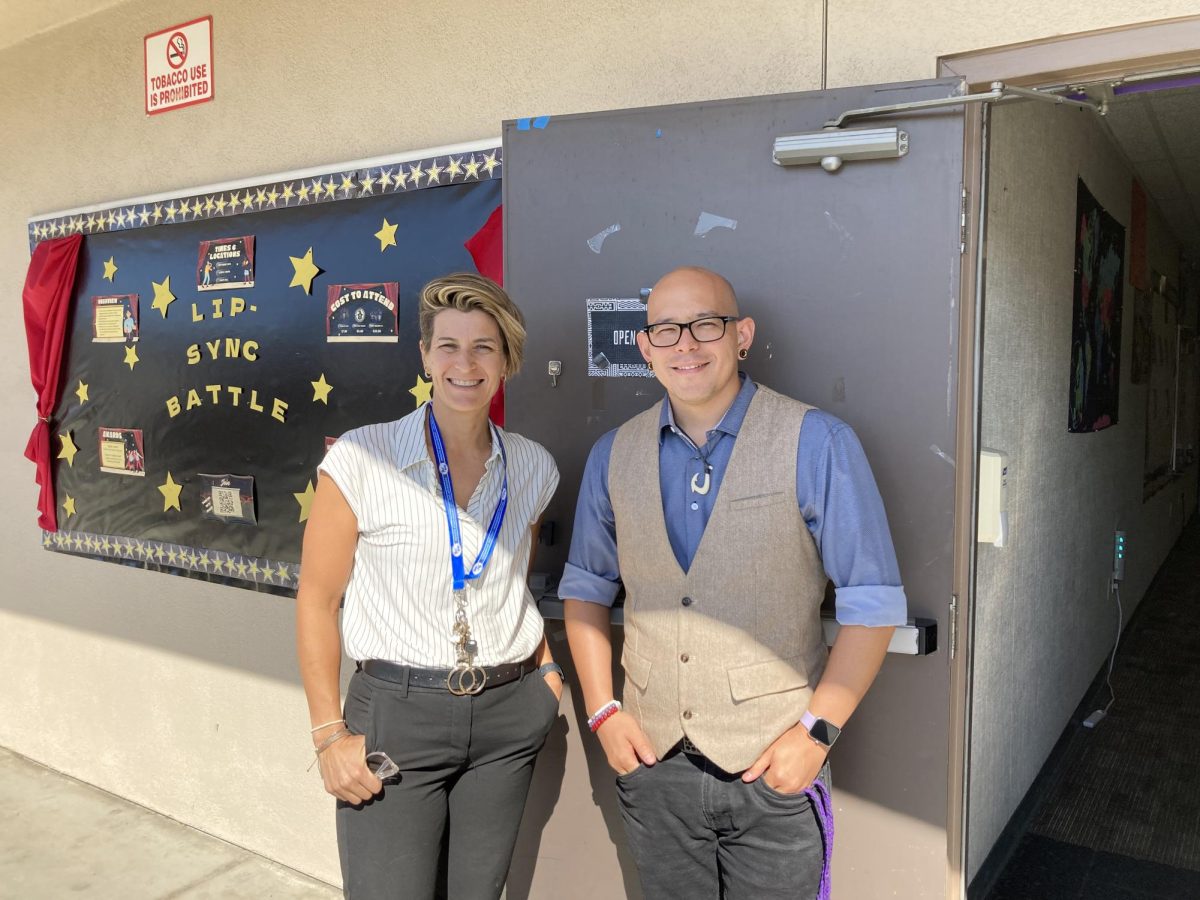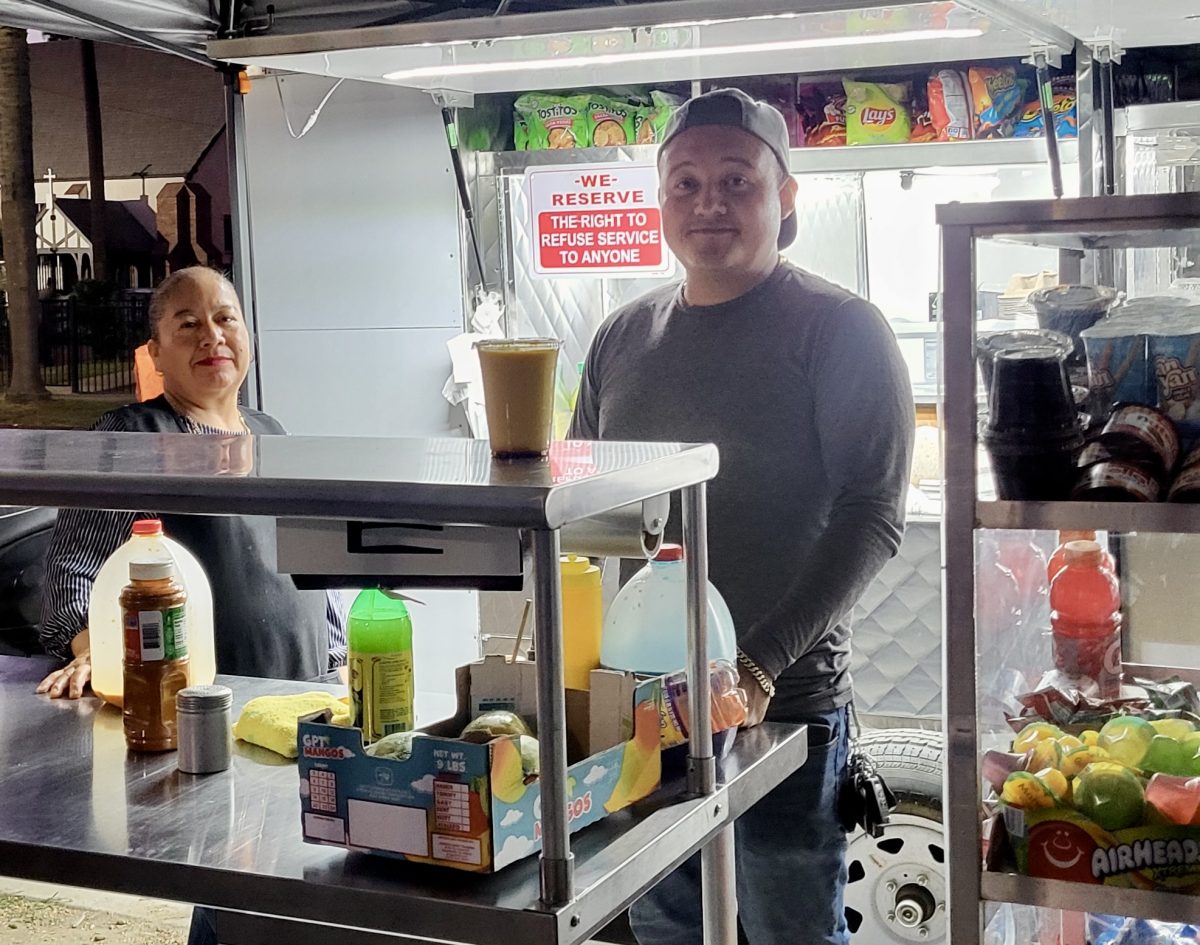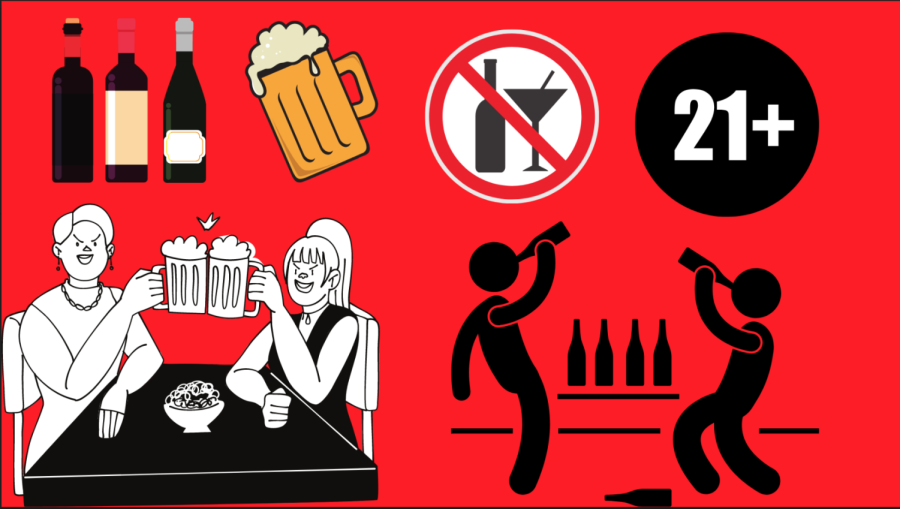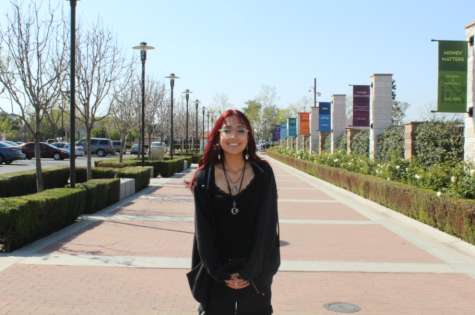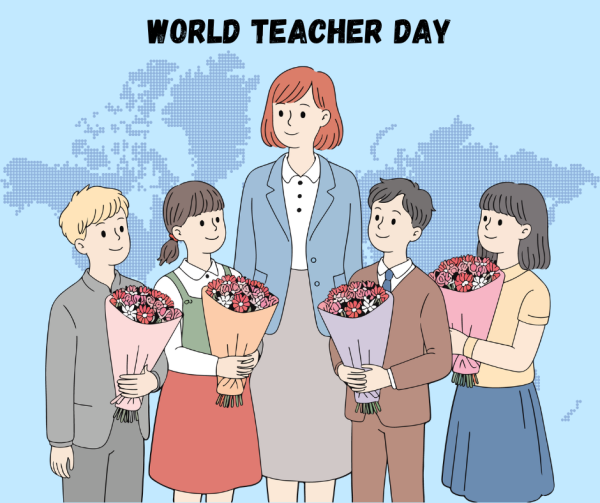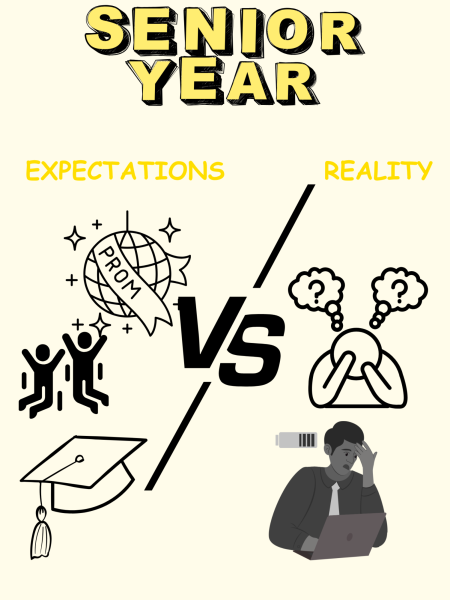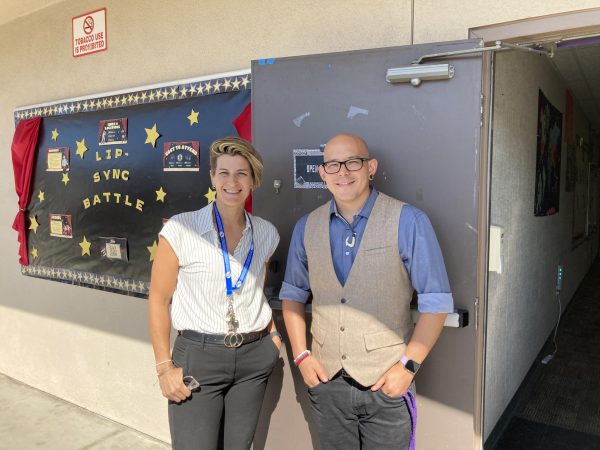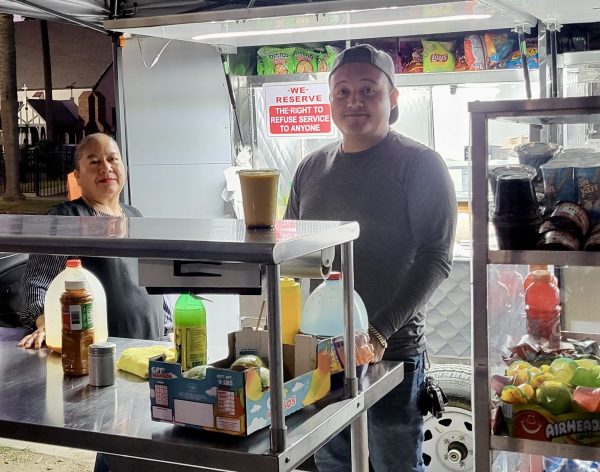The consequences of the over glorification of alcohol: a personal story
April Alvarez (made with Canva)
Alcohol addiction and dependency is usually dismissed because of its normality.
Alcohol is the most commonly used drug in the United States. You see it in the media, in social environments, restaurants, and in the cupboards of houses. Despite it being so ubiquitous, alcohol is considered the deadliest drug with devastating consequences when it reaches a point in severity. Unfortunately, many teens and young people turn to alcohol as a way to be more socially accepted, to cope with their own experiences, or to have fun. I have had my personal experience with substance abuse, particularly alcohol. I abused the substance for years to cope with suppressed trauma that still affects me to this day. I had no idea of the consequences I would endure after and during the abuse. It was an experience that was detrimentally life-changing.
Alcohol is a commonly consumed drug among American youth. Nearly 70% of American youth reported having consumed alcohol before the legal age of 21. Two out of three teens say it is easy to get alcohol from their homes without parents knowing about it. This demonstrates that because of its easy accessibility, teens are most likely to get their alcohol supply from their parents. This contributes to why alcohol is the most commonly used drug by teens. It’s accessibility, normalization, and association with pleasure and maturity are influences as to why other people abuse the substance.
An anonymous senior shared their experiences with alcohol.
“I became dependent on it and whenever I had the chance I took it. I accessed it through my parents without their knowledge because they had alcohol in the house. I drank to suppress the pain I felt. I shouldn’t have been taking alcohol because of its consequences and I was young. I’m certain taking alcohol at a young age messed me up mentally and I’m certain I have issues because of it. I associated happiness with alcohol, which caused me to think if I didn’t have alcohol, I wouldn’t be happy,” they said.
Another anonymous peer believes teens yearn to behave how adults do.
“The over glorification of alcohol comes from the fact that it is so easily accessible because of how common alcohol is in homes. I think teens abuse it because they want to be adults so badly but there’s more to that than just drinking,” they said.
Counselor Janet Montes shared her own opinions on teen alcohol abuse.
“I would say that when you are at a teenage age from a developmental standpoint your body is still growing and connecting, so I think that when students are abusing alcohol and have access to it even if they’re not necessarily drinking a ton of it but just having access or learning to experiment, the way that it actually works with their brain chemistry and the way it works with your hormones and everything that’s going on all at once I think that’s why it’s intriguing…You’re feeling something different but when you’re a teenager you don’t have control of it very much. Especially because a lot of people will expect you to act like an adult but you don’t necessarily have the same privileges as an adult,” she said.
I can testify to the effects on alcohol abuse as a young teenager.
Alcohol was my escape from the almost unbearable reality I faced every second of every day. The pain I felt for years of my childhood was diminished whenever I took a drink. It was my savior; I just didn’t see it as anything else. It numbed me from all the horrible thoughts recurring in my head. I felt completely different one drink after another. I felt invincible. It provided me with the self confidence I was looking for. I felt the happiest I’ve ever been. Whenever I drowned myself in it, I felt free. Free from everything that consumed my mind. The first time I drank I was with a good friend who offered it to me. I agreed out of curiosity. When I was feeling the effects, I realized that it numbed my sorrows. The more I drank, the less sad and empty I felt.
The first time I was drunk built the foundation for the kind of drinking that I would later do. I drank for years because of how emotionally dependent I was on it. I felt relaxed, sociable, confident, flowy, more at peace, and overall content with everything I was feeling. The more I drank, the longer I felt happy, or so I thought. My body and my mind believed that I needed to drink in order to experience happiness.
I absolutely hated myself for finding safety and security in a drug. I hated the way I felt emotionally after every binge-drink. I hated the fact that I wasn’t happy anymore. I hated the withdrawal symptoms I’d get if I didn’t drink. I was so lethargic and it seemed like my stamina completely plummeted. When I drank, I had this warm sensation starting from my chest and moving towards my extremities. The pleasure was addicting. I experienced pulsating pain in those areas that would experience pleasure if I drank. I compare the pulsating pain to the intense pins-and-needles sensation that comes in waves.
When I wouldn’t drink, I felt physically empty. It was like I was missing something. My appetite would be non-existent and I’d be so anxious and shaky throughout the day. I ended up falling into these depressive episodes. I first attempted sobriety in the summer of 2019. It hit me so hard. Especially when I would wake up early to attend my college class. I felt fatigued, pulsating pain, and I experienced extreme energy loss. It was difficult to pay attention in class when I never felt worse.
I hated the way I was dependent on a drug that didn’t provide me the illusion of happiness it was marketed on. It was a temporary happiness that was masquerading itself to get me to drink more and more. My happiness was nothing more than a facade.
I confided in my friends with the problems I was facing. I told them about how I would drink to suppress my traumatic experiences haunting me again. The people I told, who I loved and cared for, seemed so disappointed in me. Their reactions absolutely shattered my heart. I was disappointed in myself for letting my dependency get to that point. I had these feelings for a long time before I finally stopped. It took me a long time to accept that I knew that’s not how I wanted to continue living.
After years of abusing the substance, I quit cold turkey. I didn’t want my mother to worry about me so I hid in my room when I had intense withdrawal symptoms. My significant other and my friends were my biggest support when I finally stuck to sobriety. Suddenly stopping drinking was one of the most difficult things I ever had to do. Learning to be happy again without the assistance of a drug was an experience I felt so alone in. Even with my friends and significant other being so supportive, I felt alone without the instant gratification I would obtain from drinking. Letting go of the emotional and physical ties I had with alcohol was rewarding to my spirit and my mentality.
It took me a very long time to come to the conclusion that pleasure is not happiness. The ecstatic euphoria I’d feel emotionally and sensually was all a deception. People who are struggling with alcohol or substance abuse aren’t alone. Alcoholism is a disease. There are options for treatment, such as counseling, medication through a physician, and support groups like Alcoholics Anonymous. It’s vital to know the signs before the severity increases. If you or someone you know is struggling with alcohol or substance abuse, there are resources that can be of assistance. Reach out to people you trust. You are loved and valid.

